#utena blogging
Explore tagged Tumblr posts
Text
Utena Liveblog Episode 1
Anyway, I just found out Revolutionary Girl Utena is on youtube, so I’m gonna finally actually watch it. I know it’s pretty dark, and that a bunch of stuff I like was inspired by it, but other than that I’m going in blind.
Note; Here is a link to a list of trigger warnings for this show. I don’t know when these go into effect, so everything’s under a read-more.




Only 3 minutes in and this is already extremely Gender™️

That is not the boy’s uniform.

“Incidentally, there is a rule saying dogs can’t play basketball.”

Oh hey, she’s got the ring from the intro bit.


And then she just walks away without answering. Power move, tbh

I don’t know about you, but I’m sure that creepy horror music playing over this shot can only mean good things!
Anyway, I just hit the mobile image limit, so I’m gonna reblog this with the next part in a bit.
13 notes
·
View notes
Text
Poor Little Meow Meow Poll Round 1


KIRYUU TOUGA (student council president and totally normal boy)
Qualifications:
Awful Teen
Trauma Symptoms
perpetuating cycles of abuse
drama queen
QUOTE: “Aren't you my only friend?”
THE VAMPIRE ARMAND (supreme evil twink)
Qualifications:
Awful Teen
Trauma Symptoms
perpetuating cycles of abuse
drama queen
QUOTE: “What's a mediocre star to a 514-year-old vampire?”
(Feel free to vote even if you don’t know the canons! Which one has bigger wet cat vibes?)
6 notes
·
View notes
Text
Gendered pronouns in Japanese vs English
In Revolutionary Girl Utena, the main character Utena is a girl (it says so in the title), but very conspicuously uses the masculine first person pronoun 僕 (boku) and dresses in (a variation of) the boys school uniform. Utena's gender, and gender in general, is a core theme of the work. And yet, I haven’t seen a single translation or analysis post where anyone considers using anything other than she/her for Utena when speaking of her in English. This made me wonder: how does one’s choice of pronouns in Japanese correspond to what one’s preferred pronouns would be in English?

There are 3 main differences between gendered pronouns in Japanese vs English
Japanese pronouns are used to refer to yourself (first-person), while English pronouns are used to refer to others (third-person)
The Japanese pronoun you use will differ based on context
Japanese pronouns signify more than just gender
Let’s look at each of these differences in turn and how these differences might lead to a seeming incongruity between one’s Japanese pronoun choice and one’s English pronoun choice (such as the 僕 (boku) vs she/her discrepancy with Utena).
Part 1: First-person vs third-person
While Japanese does technically have gendered third person pronouns (彼、彼女) they are used infrequently¹ and have much less cultural importance placed on them than English third person pronouns. Therefore, I would argue that the cultural equivalent of the gender-signifying third-person pronoun in English is the Japanese first-person pronoun. Much like English “pronouns in bio”, Japanese first-person pronoun choice is considered an expression of identity.
Japanese pronouns are used exclusively to refer to yourself, and therefore a speaker can change the pronoun they’re using for themself on a whim, sometimes mid-conversation, without it being much of an incident. Meanwhile in English, Marquis Bey argues that “Pronouns are like tiny vessels of verification that others are picking up what you are putting down” (2021). By having others use them and externally verify the internal truth of one’s gender, English pronouns, I believe, are seen as more truthful, less frivolous, than Japanese pronouns. They are seen as signifying an objective truth of the referent’s gender; if not objective then at least socially agreed-upon, while Japanese pronouns only signify how the subject feels at this particular moment — purely subjective.
Part 2: Context dependent pronoun use
Japanese speakers often don’t use just one pronoun. As you can see in the below chart, a young man using 俺 (ore) among friends might use 私 (watashi) or 自分 (jibun) when speaking to a teacher. This complicates the idea that these pronouns are gendered, because their gendering depends heavily on context. A man using 私 (watashi) to a teacher is gender-conforming, a man using 私 (watashi) while drinking with friends is gender-non-conforming. Again, this reinforces the relative instability of Japanese pronoun choice, and distances it from gender.

Part 3: Signifying more than gender
English pronouns signify little besides the gender of the antecedent. Because of this, pronouns in English have come to be a shorthand for expressing one’s own gender experience - they reflect an internal gendered truth. However, Japanese pronoun choice doesn’t reflect an “internal truth” of gender. It can signify multiple aspects of your self - gender, sexuality, personality.
For example, 僕 (boku) is used by gay men to communicate that they are bottoms, contrasted with the use of 俺 (ore) by tops. 僕 (boku) may also be used by softer, academic men and boys (in casual contexts - note that many men use 僕 (boku) in more formal contexts) as a personality signifier - maybe to communicate something as simplistic as “I’m not the kind of guy who’s into sports.” 俺 (ore) could be used by a butch lesbian who still strongly identifies as a woman, in order to signify sexuality and an assertive personality. 私 (watashi) may be used by people of all genders to convey professionalism. The list goes on.
I believe this is what’s happening with Utena - she is signifying her rebellion against traditional feminine gender roles with her use of 僕 (boku), but as part of this rebellion, she necessarily must still be a girl. Rather than saying “girls don’t use boku, so I’m not a girl”, her pronoun choice is saying “your conception of femininity is bullshit, girls can use boku too”.

Through translation, gendered assumptions need to be made, sometimes about real people. Remember that he/they, she/her, they/them are purely English linguistic constructs, and don’t correspond directly to one’s gender, just as they don’t correspond directly to the Japanese pronouns one might use. Imagine a scenario where you are translating a news story about a Japanese genderqueer person. The most ethical way to determine what pronouns they would prefer would be to get in contact with them and ask them, right? But what if they don’t speak English? Are you going to have to teach them English, and the nuances of English pronoun choice, before you can translate the piece? That would be ridiculous! It’s simply not a viable option². So you must make a gendered assumption based on all the factors - their Japanese pronoun use (context dependent!), their clothing, the way they present their body, their speech patterns, etc.
If translation is about rewriting the text as if it were originally in the target language, you must also rewrite the gender of those people and characters in the translation. The question you must ask yourself is: How does their gender presentation, which has been tailored to a Japanese-language understanding of gender, correspond to an equivalent English-language understanding of gender? This is an incredibly fraught decision, but nonetheless a necessary one. It’s an unsatisfying dilemma, and one that poignantly exposes the fickle, unstable, culture-dependent nature of gender.

Notes and References
¹ Usually in Japanese, speakers use the person’s name directly to address someone in second or third person
² And has colonialist undertones as a solution if you ask me - “You need to pick English pronouns! You ought to understand your gender through our language!”
Bey, Marquis— 2021 Re: [No Subject]—On Nonbinary Gender
Rose divider taken from this post
#langblr#japanese#japanese language#language#language learning#linguistics#learning japanese#utena#revolutionary girl utena#shojo kakumei utena#rgu#sku#gender#transgender#nonbinary#trans#official blog post#translation#media analysis
2K notes
·
View notes
Text
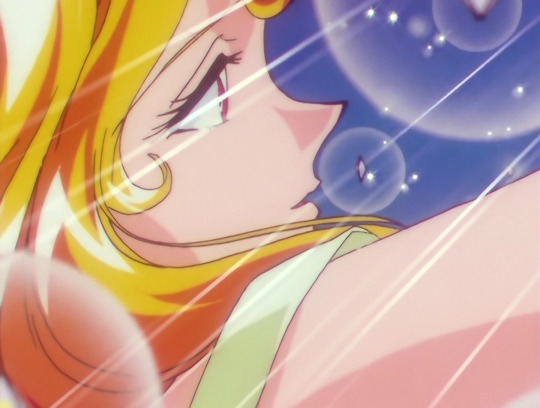


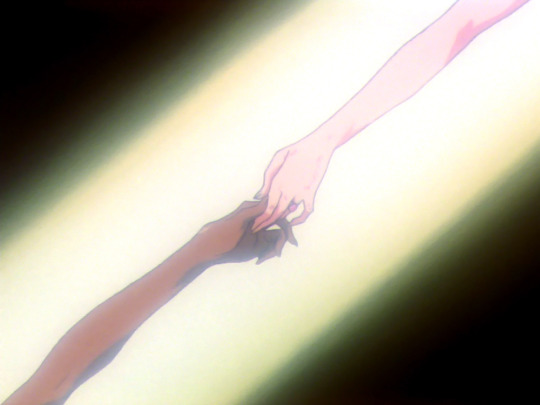
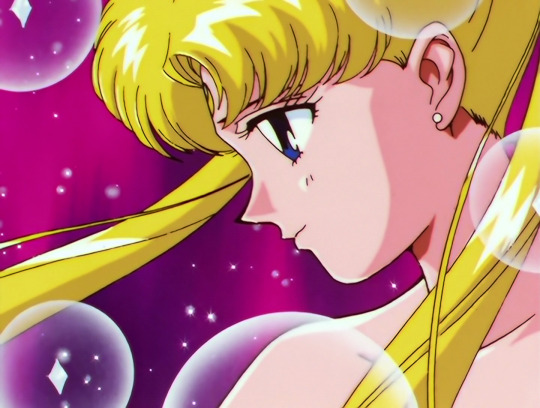
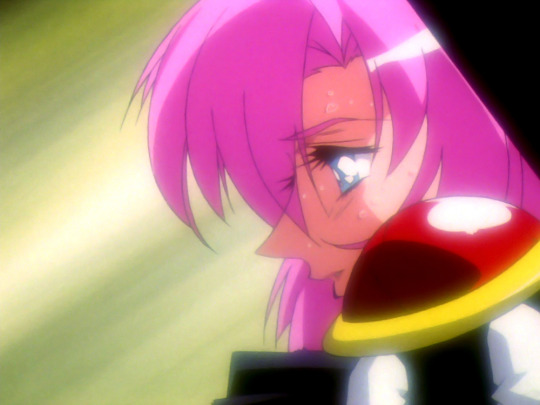
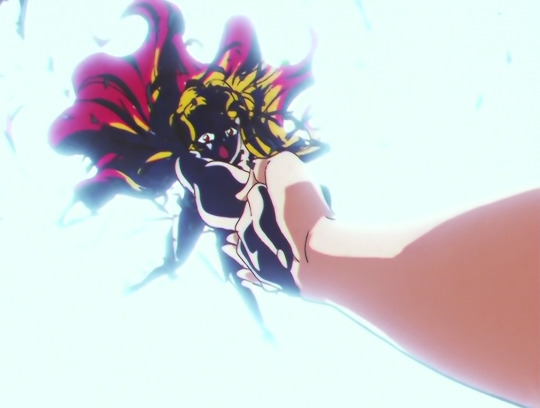
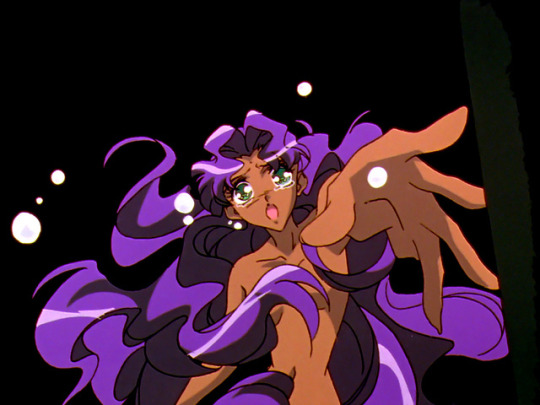
sailor moon episode 200 .. revolutionary girl utena episode 39
#rgu#sailor moon#sailor moon stars#sailor galaxia#anthy himemiya#utena tenjou#usagi tsukino#galaxia does not fall but anthy does- still decided to include the last pics though because they look similar#i know i'm not breaking new ground or anything with this one btw. i just wanted to line them up nicely. this blog is my scrapbook#(and sorry if someone made this exact post at some point and i just couldnt find it in the few minutes i spent checking lol)#interesting i and i assume others heavily associate this sequence with utena but sm did it first#maybe someone else did it even more first. feel free to reply and tell me#it's been posted already so i won't post it here but the rgu homage in cosmos did kinda inspire me to make this post bc its like#90s sailor moon inspired utena which then inspired cosmos... swag. very Cyclical of you. endlessly meta
268 notes
·
View notes
Text
I think it’s interesting in rgu how Utena’s aspiration of being a prince is not only hurtful to Anthy but also serves a sort of double purpose in Utena’s life wherein it allows her to express aspects of her gender expression and sexuality without having to really confront them directly, and a lot of the most important moments in her character arc are moments where she has to confront those things without relying on it.
Utena saying at the end that the only times she was really happy was when she was with Anthy is so important because it’s not just her presence that changes Anthy’s life but the reverse is true as well, and the idea that she is acting solely on some sort of heroic noble mission separate from her own feelings at times allows her to kind of sidestep the vulnerability of admitting that. It’s after Dios has urged her to give up, saying that she’s done all she could and giving her a way out and into complacency that would still leave her ego and dream of keeping her promise to Dios partially intact, but it wasn’t ever really her promise to Dios that mattered but her promise to Anthy both as a child and once she knows her that matters.
It’s also really interesting that the first time she says no to Akio she says it’s because she wants to stay true to her prince—it’s an idea that gives her a way to momentarily reject his advances without acknowledging that her own feelings should be reason enough, and shows how she feels that appealing to (even an abstract) patriarchal figure gives validity to her own feelings that they wouldn’t have on their own.
Episodes 12 and 37 are also really interesting in that they both begin when Utena has realized that she does not truly know or understand Anthy and feels betrayed by her, and she temporarily renounces her role of “protecting” her only to realize that her relationship with Anthy is deeply important to her personally even outside of that dynamic, as is her masculinity/gender expression, but in order to express this realization she ultimately returns to that dynamic (trying to protect Anthy via the dueling system) in both cases because she cannot yet imagine another way. It’s not until she fails at being a prince that she succeeds in expressing her true feelings and escaping the academy/the structure it represents (and inspiring Anthy to do the same) because those things were never truly compatible to begin with.
#I promise I will talk about things other than rgu on this blog at some point#I only have one season of Black Sails and IWTV left! and I will have lots of thoughts when I’m done#I just need to sit down and finish them#anyway I know all these themes in Utena have been rehashed a lot I just like talking about them so#rgu#revolutionary girl utena#mine
363 notes
·
View notes
Text
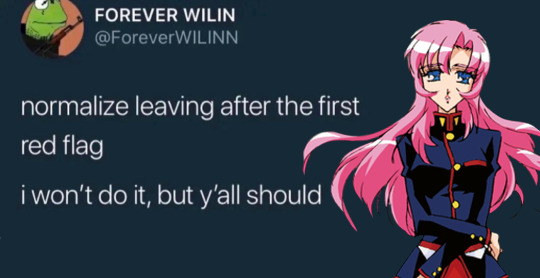






Shout outs to Wakaba for being the only brown eyed character frfr
#i haven't made much rgu content in a while eithere here or on my art blog#a shame#rgu#revolutionary girl utena#sku#shoujo kakumei utena#wakaba shinohara#utena tenjou#anthy himemiya#akio ohtori#mikage souji#mamiya chida#touga kiryuu#juri arisugawa#↪ posts
2K notes
·
View notes
Text
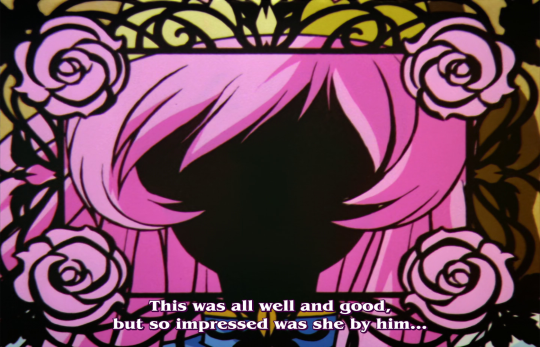
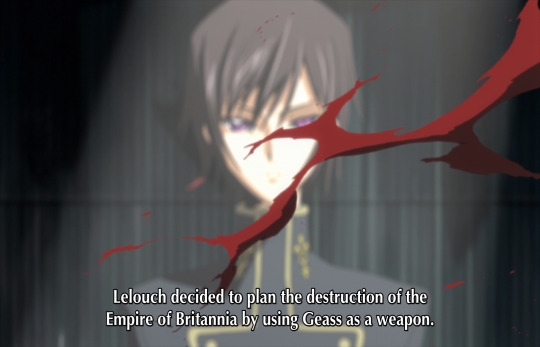
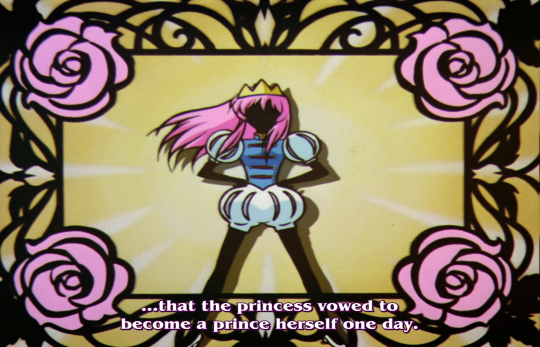

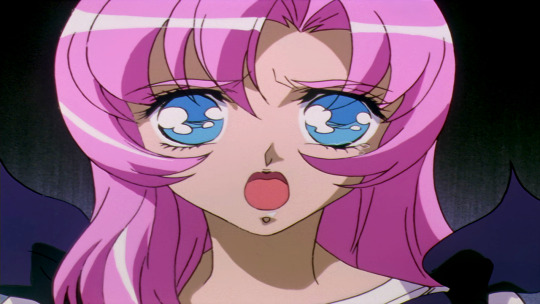
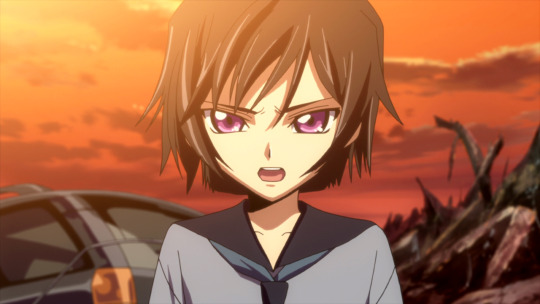
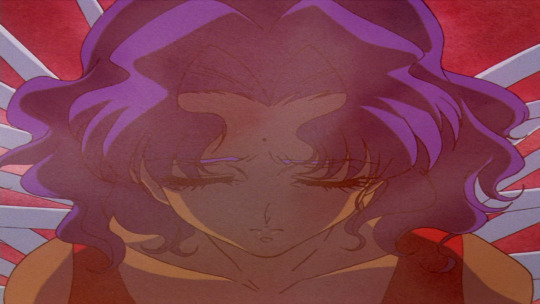
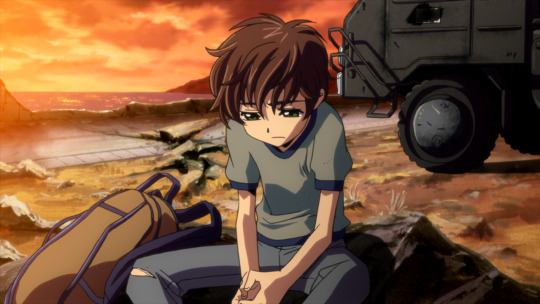

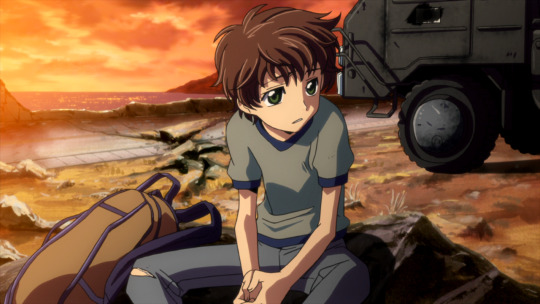

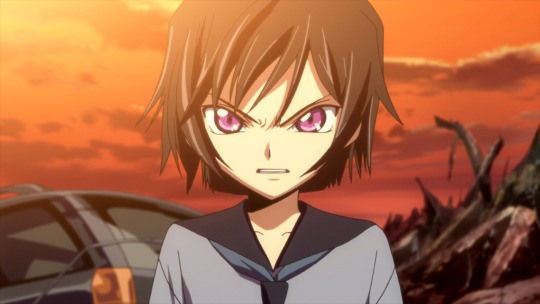
Then I’ll become a prince! I'll become her prince and save her! [...] I swear, I’ll become a prince! I swear!
REVOLUTIONARY GIRL UTENA DUEL 34: THE ROSE SIGNET
I swear... Suzaku, I swear! I’m going to obliterate Britannia!
CODE GEASS: LELOUCH OF THE REBELLION STAGE 1: THE DAY A NEW DEMON WAS BORN
#i've had this drafted since before i started this blog#suzalulu#code geass#revolutionary girl utena#comparatives#canon#lelouch of the rebellion#1x01#i grabbed the recap caps from i believe 1x04 but it's roughly the same on most s1 eps. which is the point obviously#i love how utena repeats the fairytale version (that erases anthy) at the start of every episode and we don't see the reality#until nearly the end of the series whereas cg OPENS with suzaku & lelouch but almost every episode starts with a recap positing nunnally#and avenging marianne as lelouch's sole motivations which is ofc what he also claims for most of the series#(''are you using nunnally as an excuse again'' ''you're right. i've fought to protect everything i wanted to protect'' 🤪)
399 notes
·
View notes
Text
Anthy Himemiya from Revolutionary Girl Utena

propaganda: please god let her be free
@agnesandhilda
101 notes
·
View notes
Text

weird little guy from one of the pieces of official art of utena that i feel the need to share with the world. i have never seen this thing before
#the full piece is so weird. why does she look Like That and why is she holding a little chibi version of herself in a different artstyle#only posting the cropped version because i don't want it on my blog#utena#m
59 notes
·
View notes
Text
Utena Liveblog Episode 5
First Episode
Previous Episode
Okay, so I had a paper to write, but that’s done now so I can finish this 2-parter!

And we start with a normal sword fight without anyone’s engagement at stake. Presumably, at least. Maybe Mickey promised to marry Ringlets if she beats him, who knows.

And Mickey wins! Sorry Ringlets, I’m sure you’ll get another chance at his hand.

“You ever hear about how pro-level fencers don’t know how to react to novices who don’t use the standard forms?”
“Are you calling me a novice!?”


Okay, so I had assumed that Anthy had, like, seen Mickey’s notes or something and that was how she was playing his song, but it sounds like she could have just learned it normally without knowing he wrote it.

Is it a good idea to have an open piano out in a garden? Wouldn’t the weather damage it or something?

Surely you could cancel or postpone the concert or whatever when one of the performers has measles
Given that she already has stage fright, obviously she was extremely upset being made to play in front of a huge crowd while her brother who promised to help her was sick. Apparently she hasn’t played piano since. Mickey blames himself, for…catching measles? I guess?

Oh hey, he’s standing up for Anthy!

I assume the rose means she’s important. Maybe she’s Mickey’s sister? She really doesn’t seem to be on great terms with him if she is

Looks like she is!
That’s the image limit, so I’ll reblog with the next part and we’ll find out why she’s so disheveled in a bit
9 notes
·
View notes
Text
aspocko
ok but marthe is the saionji, yes? jerott can fit so many swords inside of him!
@aspocko I see where you're coming from and you have a point, but let me explain. My interpretation of the Swords of Human Hatred that exist inside Anthy constantly stabbing her is that they represent the human need to scapegoat the Other. The swords originally go after Dios for failing to 'rescue' the princesses of the world from the pain of living, and when Anthy stands between them and him they blame her instead.
Jerott, like Saionji, is in love with his emotionally withholding male best friend, and in denial about it. He is constantly stabbed by his own sword of self hatred and internalized homophobia, but he does not generally have to deal with other people's hatred of the Other being wielded against him. In this way he matches Saionji, who suffers internally due to his toxic masculinity and love for Touga, but takes this pain out externally on women (Anthy). He would definitely be Lymond's Bride and Lymond would be able to draw his heart sword, but he's not a Rose Bride type.
Marthe, as a woman, a bastard and an abuse survivor, who is intensely aware of her position as all of these things, has much more experience being a scapegoated Other. And while both Marthe and Jerott are sacrificed in CM for Lymond and Philippa's happiness, Marthe is the one who is physically sacrificed, to a hatred aimed at her brother .
I'll say Marthe is really somewhere in between Anthy and Nanami, actually, because she's not as subtle as Anthy and her unrequited quasi-incestuous jealousy over Lymond is closer to Nanami's situation.
I thought about Jerott and Marthe in Checkmate for a bit too long today. send help.
19 notes
·
View notes
Text

I’m starting a big new project! I’m going to be doing a fansub of Revolutionary Girl Utena! And here's the first episode!!!
This is my first time translating something as big as this, and as semiotically dense as this. I think I’m biting off a lot more than I can chew, but I’m very excited to learn more about the art of translation as I go. There are a few reasons why I decided to do this:
The existing translations are unnatural. I’m not a fan of most anime translations. There are exceptions (Kotaro lives alone, Aggretsuko), but in general I think they sound very unnatural, and Utena is one of these unnatural translations. I’ve found two translations — one from Ohtori.nu (as scripts) and one as subtitles on the free-to-access Archive.org files. Both translations make use of several awkward translation practices I commonly see in anime (some of which I have discussed in this post). I intend to highlight some of these in posts as I progress through the translation process.
I don’t believe the existing translations have been written with a queer reading of Utena in mind. I feel I’m specially poised to provide a translation that emphasises the queer themes of the story, as a bilingual nonbinary person with a love of media analysis. Look forward to they/she Utena :P
As I finish each episode, I plan to host them on a google drive and post the links to them on this blog! If you’ve never watched Utena, now is the time! Make sure to follow the blog if you're interested in catching updates.
186 notes
·
View notes
Text
The Girl That Drowned


The Boy That Tried To Save Her


The Prince's Disappearance


#i had this queued on my other blog but it got nuked#there was another thing too but i cant remember what it is#utena#rgu#revolutionary girl utena#adolescence of utena
326 notes
·
View notes
Text

#i thought this was already on my blog but i couldn't find it so#this and the utena art i just reblogged...🚬🚬#nana#ai yazawa
89 notes
·
View notes
Text
Okay, so I accidentally thought about Stage Productions of Dr. Horrible Where There’s Not Enough Male Actors So Billy is Played By a Woman too hard again. And the thing is, well, I say ‘Stage Productions of Dr. Horrible Where There’s Not Enough Male Actors So Billy is Played By a Woman’ and not, like, ‘Female!Billy Productions’ because in all of the ones I’ve seen the script is unchanged and so the character is still textually a man. Super-minor characters like the Mayor and the two Newscasters or even Bad Horse can sometimes get genderswapped, but usually the kind of people dedicated enough to DHSAB to want to create their own recreation of it don’t want to change the script too much. So Billy remains gendered the same way he is in the original.
But also… Dr. Horrible isn’t gendered that much in the text of the script. Like, he gets talked about in third-person way less often than the other two leads (so there’s less places where he would be called he/him/himself), he’s not referred to using gendered terms as often as the two other leads, ‘Billy’ can work as a gender-neutral name and ‘Dr. Horrible’ is 100% gender-neutral. As such, the only textual references to Dr. Horrible being a dude are:
Refers to himself as a guy in ‘My Freeze Ray’: ‘I’m the guy who makes it real/the feelings you don’t dare to feel’
Refers to himself as a man in the title line of ‘A Man’s Gotta Do’
Moist calls him a man in the line ‘look at me, Man, I’m Moist!’
Refers to himself as a guy in ‘Brand New Day’, ‘Go ahead and laugh/Yeah I’m a funny guy!’
The one time Dr. Horrible is called by a third person pronoun is during ‘So They Say’, when Moist notes that ‘he’s still not picking up’
During ‘Everything You Ever’, he sings ‘My victory’s complete/so hail to the king’. Implicitly calling himself a ‘king’.
So, like, what that means is that if a production did just want to genderswap Billy… it’ll be considerably easier than doing it with either of the other two leads. There’s basically just a few lines you have to change and basically nothing else.
Like, ‘I’m the gal who makes it real’ is really a no-brainer. ‘a man’s gotta do what a man’s gotta do’ is an Idiom and I could see a woman quoting it without it meaning anything. (And in a pinch you can replace it with the gender-neutral ‘one’s gotta do what one’s gotta do' or maybe 'I've gotta do what I've gotta do').
“He’s still not picking up” often gets cut from stage reworks of ‘So They Say’ anyways or swapped for something like ‘Doc’s still not picking up’ to make it clear who’s Moist talking to without the Magic the Kuleshov Effect Really. The only line that offers any meaningful challenge is in ‘Brand New Day’ and 'Everything You Ever' cause that use of ‘guy’ and 'king' is part of a rhyme, but I still feel like it’s not the toughest one to solve.

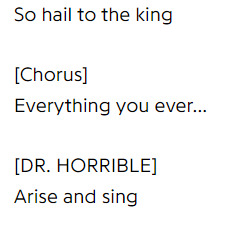
… of course, I keep saying the three main characters because Moist isn’t actually gendered once in the entire script. So basically every time a production gets a girl to play Moist that Moist has a Gender Quantum Position.
But, with all due respect to Moist and their Quantum Gender, that’s just not a change I find as interesting as the possibility of a Female Billy. Like, hey! We’ve got a second female character who is not primarily defined through her romantic relationships and survives through the end of the narrative and has a kind of a Gross Power you don’t really see for a female super-character, that’s… kinda neat. But I don’t really think there’s anything in here that really shakes the basic thematic undercurrents of the movie the way Female Billy does. Female Billy has a really the highest rate of Implied Changes to the Meaning of the Text Caused by the Change Vs. Actual Changes Required to the Text
Because, okay, look… Would making Dr. Horrible a woman fix every single thematic problem people have with the DHSAB Narrative forever and ever and make it the Politically Perfect-est Musical Ever? Nah. Does it arguably create its own set of problems with the whole Tragic Toxic Lesbian Trope? Yeah…
But that’s why I’m advocating for it not as some sort of Remake that’s gonna be the New Definitive Version That Fixes Everything, but as a stage production. A new version that exists in the Kaleidoscopic Multiverse of takes that the stage inherently creates. Not Ultimate, not Definitive, not ‘The’ version. Just A Version I think should exist. Because even if it’s not a change that’ll Fix Everything, it’s still gonna change things in a way I, personally, find very Compelling.
And I was thinking, as part of this train of thought, that if I were to do Lesbian Billy, that for Penny’s role, I would try and cast a girl with a very butch and/or nonconformist haircut. Cause, like, at the start, the one line Billy wants to tell Penny is

And that way you can connect it with how nonconformist hairstyles are used as a way to communicate queerness to other queer people with some plausible deniability from Mainstream Society. So it’s not just that it helps explain ‘oh, that’s why Billy even assumes her attraction could be mutual’, wanting to tell Penny that she loves her hair is a whole thing of

Or rather, because it’s Billy, more like
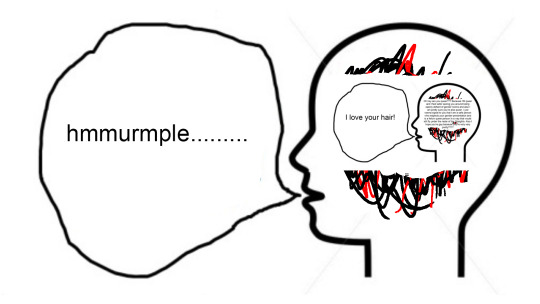
So that’s another layer of Added Thematic Meaning just via casting choices, without changing anything about the exact text of the script!
And, you know, charity, compassion and kindness are not Exclusively Feminine Traits. Penny could be kinda gender-nonconformist while also being innocent and maybe a bit naive. And, y’know, she’s a damsel in distress when compared to the characters who have super-strength and super-science at their disposal.
And then I thought, well, maybe we can also show Penny dressing more feminine during her time dating Captain Hammer, so there’s kind of an unspoken implication to the audience that maybe CH is pressuring her into being more gender-conformiming. Which isn’t just a New Way in Which Captain Hammer is terrible, it also connects with how he, as a superhero, functions as an upholder of the status que that Billy is trying to upends (and again, it makes ‘love your hair!’ an actually Really Important Line! It’s Billy showing that, even if her attraction right now is kinda shallow. She is appreciating something about Penny that is her choice and CH is probably trying to take away from her.)
And, like, even in readings of the DHSAB narrative that try and make it as critical of Billy as possible, you always kind hit a snug that there is also an unspoken but present assumption, that while Billy does kinda suck, he could’ve been a good romantic partner to Penny if he just Got Over His Shit and is still always better than Captain Hammer despite… not really doing a good job establishing why.
So this thread does give at least one clear reason for why Captain Hammer is absolutely worse for Penny than Billy is, without necessarily letting Billy off the hook for all the way she does still kinda Suck.
You know, since we’re talking about changing as little of the actual dialogue as possible, the audience might not be able to tell if Penny is an out-and-proud Bi woman and Captain Hammer is pressuring her to be less Obviously Queer or if she still hasn’t fully processed that her affinity towards gender-nonconformity is also somewhat connected to her sexuality and the whole debacle is her shoving herself deeper into the closet… but I think that if the audience notice Penny suddenly changing into girlier clothing after she starts getting close to Captain Hammer that’ll be enough to create a visceral “Oh, this guy is BAD” reaction of sort.
Plus, like, the way the narrative kinda treats Penny slowly sobering up to Captain Hammer’s bullshit and realizing she’s not actually in love with him
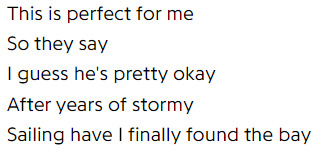
is treated as interchangeable with the process of her gradually falling in love with Billy
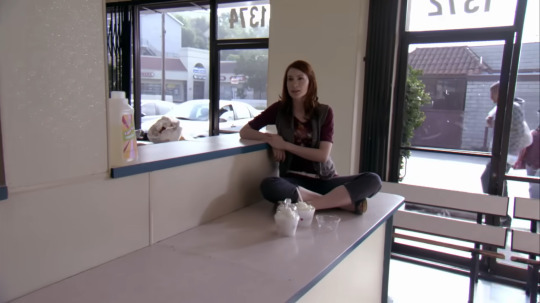
that would hit as less Weird, at least thematically, if we have that thread of Captain Hammer representing, like, Heteronormativity and the Patriarchy Billy and Penny both being girls....
And that’s when I came to realization
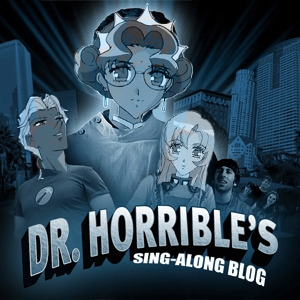
of what I was actually doing.
#dr. horrible's sing along blog#dr. horrible#musicals#doctor horrible#dr horrible#dr horribles sing along blog#revolutionary girl utena#utena#shoujo kakumei utena#utena tenjou#sku#anthy#rgu#musical#musical theatre#musical theater#theater#theatre#adaptation#anthy himemiya#rgu anthy#akio#akio ohtori
55 notes
·
View notes
Text
Nanami Kiryuu from Revolutionary Girl Utena

propaganda: literally has sunk so deep into a patriarchal/heterosexist worldview that she's almost drawn into a sexual relationship with her brother before recoiling with disgust. I think she should disassociate herself from men even more actually
submitted by: @agnesandhilda
82 notes
·
View notes